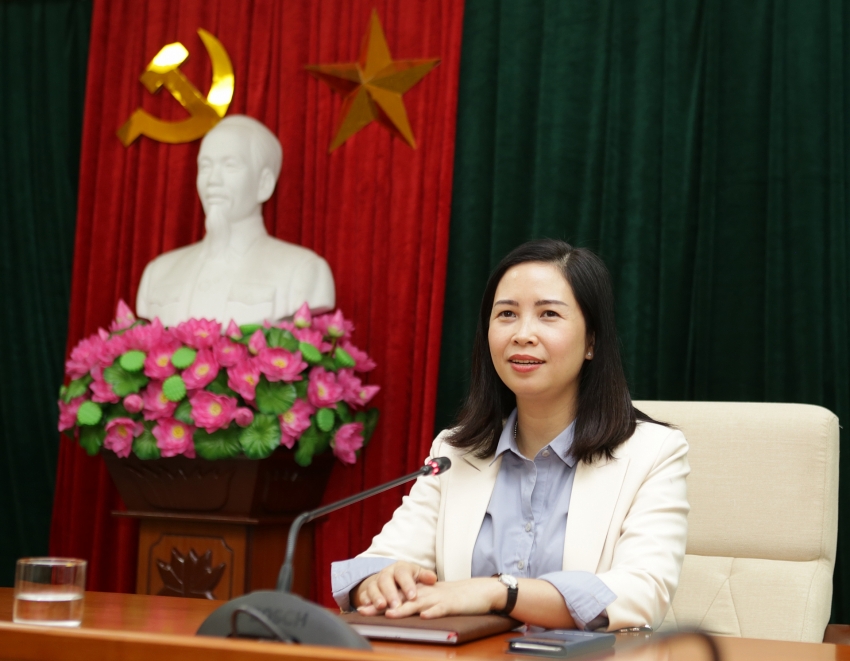VBSP achieves credit growth amid effective policy activities
 |
| Tran Lan Phuong |
Vietnam Bank for Social Policies (VBSP) outperformed the 2018 credit growth target. How was this achieved?
Our bank successfully attained the credit growth target assigned by the prime minister, making active contributions to the national programme on sustainable poverty reduction and new-style rural development to ensure political stability at grassroots level. Particularly, the system’s credit growth hit more than VND16 trillion ($695.6 million) while debt collections surpassed VND45.8 trillion ($2 billion). Nearly 6.7 million poor households and policy beneficiaries got access to preferential loans worth more than VND62 trillion ($2.7 billion).
Preferential credit came to all communes, wards and townships nationwide, focusing on those inhabited by ethnic minority peoples as well as disadvantaged, remote and border areas.
The loans helped create jobs for more than 243,000 labourers, helping nearly 6,000 to work abroad. Close to 51,000 poor students received loans to serve their study while over 1.3 million clean water and sanitation works were built in rural areas. About 30,000 houses were built for poor households, plus more than 2,800 social housings for low-income earners.
In addition, the bank’s credit operation got a positive assessment by the National Assembly’s Committee for Social Affairs, which stated that policy-based credit activities continue to bring practical effects and are a highlight in the poverty reduction cause.
What’s special about the credit quality at VBSP across 2018?
Despite our high credit growth, overdue debts at our bank stay at a rather low level. As of December 31 overdue debts and debts being frozen accounted for a mere 0.78 per cent of our total outstanding loan balance, of which overdue debts made up 0.39 per cent only. This showed that the credit quality was ensured, lending procedures were conducted seriously, and loans were used effectively by the right persons, creating high trust in the society.
Last year was the fourth year of implementing Directive 40-CT/TW of the Party Central Committee Secretariat on empowering the party’s leadership towards credit sources for social policies. From there, we have received utmost support from the party’s organisations and local authorities at all levels to enhance operational efficiency.
The bank credit sources earmarked to lend poor households and policy beneficiaries have been significantly enriched with authorised funding from local budget. Such authorised capital sources have amounted to VND8 trillion ($348 million) since Directive 40 came into force, increasing the total volume of authorised capital from local budget to VND11.8 trillion ($513 million) by the end of last year, with VND2.76 trillion ($120 million) alone in 2018, a record growth in the past 16 years.
Could you share the development plan for VBSP in 2019?
This year, the whole VBSP system will continue bringing forth the achievement reaped in the past year, simultaneously striving to better handle the tasks assigned by the prime minister, particularly focusing on five key duties.
First, we want to diversify capital sources in an effective manner, with priority given to authorised funding from localities and mobilising capital from individuals and organisations, particularly deposit activities at commune-based transaction points.
We will review social policy credit programmes to consult with authorised competent agencies about people and groups eligible to loans, lending amounts, interest rate and loan duration, making it fit for current development practice.
Third, measures will be taken to ensure credit quality across the system, strengthening internal control activities and staff training, and boosting the application of modern IT progress into the bank’s professional operations.
Next we will step up efforts to host the conference to review the five-year implementation of Directive 40.
Finally, we require to review and assess the outcomes of implementing VBSP’s development strategy in the 2011-2020 period, from there laying the groundwork for summarising the strategy implementation and penning a new one for the next development phases.
What the stars mean:
★ Poor ★ ★ Promising ★★★ Good ★★★★ Very good ★★★★★ Exceptional
Related Contents
Latest News
More News
- Banking sector targets double-digit growth (February 23, 2026 | 09:00)
- Private capital funds as cornerstone of IFC plans (February 20, 2026 | 14:38)
- Priorities for building credibility and momentum within Vietnamese IFCs (February 20, 2026 | 14:29)
- How Hong Kong can bridge critical financial centre gaps (February 20, 2026 | 14:22)
- All global experiences useful for Vietnam’s international financial hub (February 20, 2026 | 14:16)
- Raised ties reaffirm strategic trust (February 20, 2026 | 14:06)
- Sustained growth can translate into income gains (February 19, 2026 | 18:55)
- The vision to maintain a stable monetary policy (February 19, 2026 | 08:50)
- Banking sector faces data governance hurdles in AI transition (February 19, 2026 | 08:00)
- AI leading to shift in banking roles (February 18, 2026 | 19:54)

 Tag:
Tag:




















 Mobile Version
Mobile Version